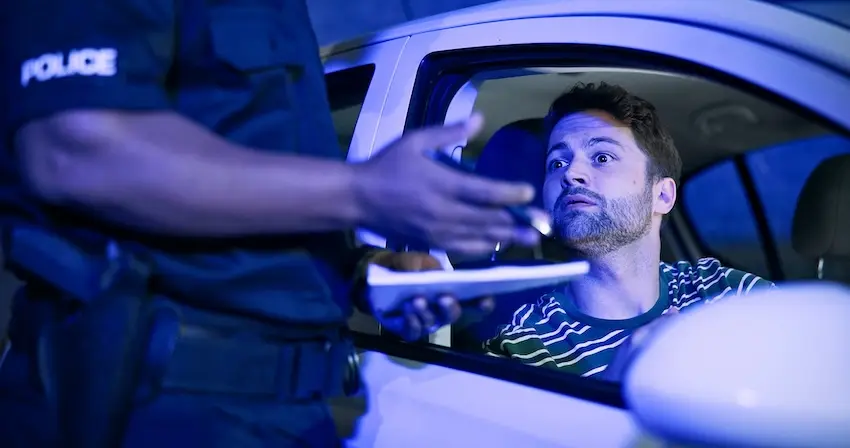Your Step-by-Step Guide from NC Car Accident Lawyers
Being involved in a car accident can create instant disruption in your life—one moment you’re driving normally, and the next you’re facing injuries, medical bills, insurance calls, and uncertainty about what to do next. Most people have never gone through a car accident claim before, so it’s completely understandable to feel overwhelmed. Knowing what to expect can make the process easier and help protect your rights.
At NC Car Accident Lawyers, we guide injured victims across North Carolina through every stage of the claim process. Whether your accident happened on I-77, I-40, US-70, or a quiet residential road, the steps that follow are largely the same. This guide breaks it all down so you know exactly what to do and how to protect your claim from start to finish.
Step 1: Prioritize Safety and Call the Police
Immediately after a crash, your health and safety come first. Check yourself and others for injuries, move to a safe area if possible, and call 911. Even if the collision seems minor, contacting law enforcement is essential. A police report creates an official record that will play a major role in determining fault later.
In North Carolina, insurance companies place heavy weight on what the police report says. Without it, your claim may become much harder to prove.
Step 2: Gather Information and Document the Scene
If you are physically able, take photos and videos as soon as it’s safe. Capture damage to all vehicles, road conditions, skid marks, weather, and visible injuries. Exchange information with the other driver, including insurance details and contact information.
This may feel tedious in the moment, but these early details often become powerful evidence. Insurance companies will often question or dispute your version of events unless you have clear documentation.
Step 3: Seek Medical Attention Quickly
One of the most important steps in the car accident claim process is getting medical care as soon as possible. Many injuries—such as concussions, soft-tissue injuries, back injuries, or whiplash—don’t show symptoms until hours or days later. Delayed treatment gives insurers an excuse to argue that you weren’t seriously hurt or that your injuries came from something unrelated.
Seeing a doctor immediately creates a medical record that links your injuries directly to the crash. Follow all recommended treatment and attend all appointments—gaps in care can hurt your claim.
Step 4: Report the Accident to Your Insurance Company
Most insurance policies require you to report accidents promptly. Keep your report simple: give basic facts about the crash, the location, and whether there were injuries. You do not have to give detailed statements or explanations.
Insurance adjusters may request a recorded statement. Politely decline until you’ve spoken with an attorney. Recorded statements are often used to twist your words or reduce your compensation.
To learn more about your rights and responsibilities in an auto insurance claim, visit the North Carolina Department of Insurance’s official consumer resources.
Step 5: Determining Fault in a North Carolina Accident
North Carolina is one of the few states that still follows pure contributory negligence. This means if the insurance company manages to prove you were even 1% at fault, you may be barred from recovering compensation.
Because of this extremely strict rule, insurers look for any possible way to blame the victim. They may argue you:
- Stopped too suddenly
- Failed to react quickly
- Were speeding
- “Should have avoided” the crash
- Contributed in some minor way
This is one of the biggest reasons why car accident victims in North Carolina often need an attorney early in the process. Your lawyer protects you from unfair blame and builds a strong case to prove you were not at fault.
Step 6: The Investigation Phase
Once your case is underway, your attorney begins gathering evidence. This may include:
- Traffic camera footage
- Body cam or dash cam recordings
- Witness testimony
- Accident reconstruction
- Medical records
- Vehicle black box data
- Expert evaluations
This stage strengthens your claim and reveals the full extent of your damages.
Step 7: Calculating the Value of Your Claim
Every car accident claim is unique, but common types of compensation in North Carolina include:
- Medical bills (current and future)
- Lost wages and reduced earning capacity
- Pain and suffering
- Permanent disability or scarring
- Property damage
- Emotional distress
- Loss of enjoyment of life
Many victims underestimate the true value of their case because they don’t consider long-term effects, future treatment, or hidden costs. We work with medical and financial experts to calculate the full amount you deserve—not just what the insurance company initially offers.
Step 8: Negotiating with the Insurance Company
This is where the process becomes challenging for most people. Insurance companies often begin with low offers, hoping victims are overwhelmed or desperate enough to accept quick cash. The truth is that early offers rarely reflect the real value of your claim.
Your attorney handles all conversations with the insurer and pushes back against unfair tactics. Most car accident claims settle during this stage—but only when the insurance company knows you’re prepared to fight if necessary.
Step 9: Filing a Lawsuit if Negotiations Fail
If the insurance company refuses to offer a fair settlement, your attorney may recommend filing a lawsuit. This doesn’t mean the case will automatically go to trial. Many cases settle during litigation once the insurer sees the strength of your evidence.
A lawsuit may involve:
- Discovery
- Depositions
- Motions
- Mediation
- Trial (if necessary)
NC Car Accident Lawyers prepares every case thoroughly so you have leverage at every stage.
Step 10: Reaching a Settlement or Going to Trial
Most car accident claims settle before reaching a courtroom. However, if the insurer continues to deny responsibility or refuses to offer reasonable compensation, going to trial may be the best way to secure justice.
Your attorney’s role is to present a compelling case supported by evidence, expert opinions, and testimony that clearly demonstrates the impact of the accident on your life.
Final Thoughts
Understanding the car accident claim process helps you make smarter decisions during one of the most stressful times of your life. While each case is different, the steps above provide a clear roadmap of what to expect.
At NC Car Accident Lawyers, our goal is to take the burden off your shoulders so you can focus on healing. We fight insurance companies every day, and we know the tactics they use—especially in North Carolina’s strict contributory negligence system. You don’t have to handle this on your own.
Ready to Protect Your Rights? Contact NC Car Accident Lawyers Today.
If you were injured in a car accident anywhere in North Carolina, our team is ready to guide you through the entire claims process and fight for the compensation you deserve.
Contact us today for a free consultation and let us help you take the next step toward recovery.







